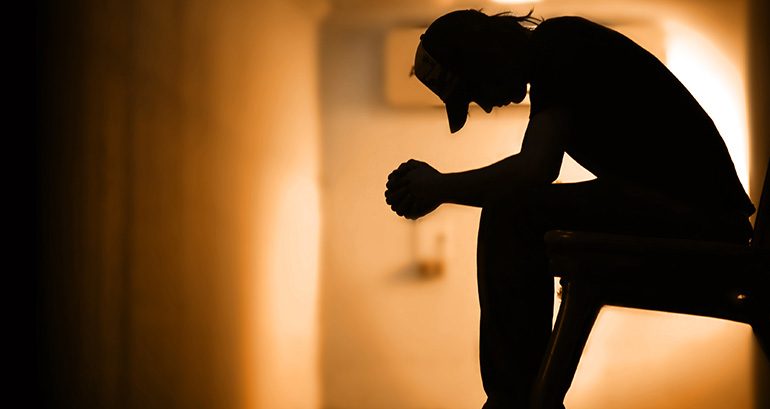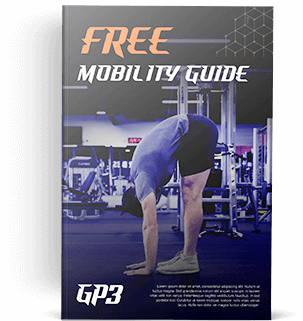Key Points:
- The “appropriate” amount of use varies from substance to substance and person to person. It’s incredibly personal.
- Beliefs about what we “need” or “shouldn’t” do can negatively influence our relationship to drugs.
- Short-term experiments can help us reframe these beliefs from positions of dependence or moralizing to enjoyment.
Estimated reading time: 6-12 minutes
Listen to this episode on Spotify!
Part one of our series on drugs focused primarily on alcohol, with part two tackling psychedelics. In part three, we’re going to discuss the use of mind-altering substances more broadly, from that nuanced and pseudo-philosophical perspective you all look forward to each week.
I need to start with an admission that I struggled mightily while writing certain parts of this piece. Figuring out what “enough” or “too much” look like varies wildly from person to person and substance to substance. The answer is also incredibly personal. Some people are perfectly comfortable telling others how much and how little they should or should not partake in various substances. I am not. So, all I can really do is share some of my own experiences, propose a couple questions to guide your explorations, and hope at least someone finds it useful. So, here goes nothing!
In briefly keeping with last week’s theme of psychedelics, let’s start with an excellent quote from Alan Watts:
“When you get the message, hang up the phone. For psychedelic drugs are simply instruments, like microscopes, telescopes, and telephones. The biologist does not sit with eye permanently glued to the microscope; he goes away and works on what he has seen.”
In this instance, Mr. Watts highlights the tendency of some people to become dependent on psychedelics in a search for spiritual truth, mistaking the altered state brought about by the drugs for “the thing” itself. It’s similar to the way in which people can waste hours arguing over which position is “correct” for meditation or how nearly every religion imposes some sort of (let’s be honest here, arbitrary) dietary restrictions.
On that note, Zen Buddhism has a metaphor about not mistaking the finger pointing to the moon for the moon itself. Daily rituals, rigid guidelines, and habitual substance use all make it easy to do just that.
So, how much is too much?
As I said, it varies. Personally, for mushrooms and/or LSD, I’ve probably averaged two or three psychedelic trips per year since my initial one in 2017. In my opinion, more frequent usage would cheapen the experience, and at this point, my main motivation for using these substances is to have fun with a particular group of friends. Some people would probably say even two to three times per year is a lot, but again, this is highly personal.
I once met a gentleman who had taken part in over 90 ayahuasca ceremonies in a single year. For those unfamiliar, this is an incredibly potent psychedelic plant, with ceremonies often taking place over multiple nights. Now, this may be an extreme example, but again, it depends on the drug.
I’d imagine there are individuals who would classify daily drinking as excessive, yet the CDC defines “moderate” alcohol consumption as one drink per day for women, and two for men. As someone who rarely drinks anymore, fourteen drinks per week sounds like quite a bit. However, when I did drink regularly, there were plenty of times when I’d easily knock out fourteen drinks in a single weekend. So, is there even a “right” answer, here?
I’ve written before about how we’re not encouraged to ask ourselves the question, “How much is enough?” with regards to income. Along those lines, a key question for substance use is, “What am I getting out of this?” If the answer is “fun,” or, “It tastes good,” that may be sufficient reason to continue using them if they aren’t negatively affecting your life. While nobody can ultimately decide the path forward except for you, it’s important to at least ask questions like this so we don’t become locked into mindless, dependent habits.
Allow me to share a time I did just that.
The fast food experiment I undertook in 2019 changed my relationship to two substances, alcohol and caffeine. Regarding the former, I basically stopped drinking it because I couldn’t afford the empty calories. After five months of comfortably averaging less than one alcoholic beverage per week, I found I didn’t really miss it.
On the other hand, I started drinking way more caffeine during this time period. I didn’t drink coffee at all until I was in my mid-20’s, and I certainly didn’t do it regularly after that. However, during the experiment, my caffeine consumption increased drastically. Since I was only eating two meals a day, the appetite-suppressing effect of coffee and energy drinks made it much easier to fast for longer periods.
Drinking caffeine became fairly habitual, and since 2019, I now consume much more of it than I used to. I was concerned that doing so had become somewhat of a mindless habit, because it had been over a year since I’d gone a full week without a coffee. In order to see how this had affected me, I decided to undergo a short experiment.
In July of this year, I signed up for a 5-day meditation retreat, and I wanted to be substance-free leading up to it. So, I decided on no caffeine, alcohol, or marijuana for the ten days prior. After the retreat was over, I spontaneously extended this substance break to 30 days, and then 45.
I ended this limitation last week, and you know what?
I didn’t feel much different.
In particular, I’d heard that giving up caffeine for 30 days could lead to some noticeably beneficial changes in energy levels, but for me at least, that didn’t come to pass. I felt roughly the same with and without it. Now, such an outcome will obviously depend on the person, and I’d classify my caffeine usage as “moderate.” Three to five times per week, I’d drink 150-300 milligrams of caffeine, and usually all before 12 p.m. so that I’d be able to sleep at night. Perhaps that’s why I didn’t feel much different.
But, the fact that I didn’t experience any significant withdrawal symptoms or feel much different after giving up these substances for over a month led me to conclude that I currently have a relatively benign relationship with all three drugs. I concluded that if they weren’t difficult to give up and I didn’t notice any major physiological or psychological consequences, I’m probably in a decent place with them.
So, even though this was only an n=1 experiment, I may have stumbled upon a useful rule of thumb.
If you feel mentally and physically fine during and after a prolonged break from a particular substance, you’re probably using it responsibly. By contrast, if doing so terrifies you or makes you feel like crap, the relationship may be worth examining.
So, what should we do for the substances that fall into the latter category? Well, we can start by examining our beliefs. I recently read a book called Born For Freedom, which makes a somewhat radical proposal. The author posits that one of the key factors in predicting addictive behaviors comes down to a particularly pernicious belief.
“I shouldn’t be doing this.”
This can be applied to food, drugs, sex, social media, videogames, or basically anything that gets commonly demonized. Now, I do want to stress that all of these do have the potential to negatively impact our relationships and responsibilities.
But, when we believe that a substance or activity is inherently “bad,” that’s when the situation can spiral. Even the belief, “I should be doing less of this than I am,” can set us up for trouble. We may start to believe that something external has control over us, and that we’re helpless to do anything about it. We might start to engage in “all or nothing” thinking, or blame ourselves when we partake in something we think we “should not” be doing.
To break out of this trap, we can take a simple step to show ourselves that we’re fine both with and without any particular substance.
Caffeine is one of the easiest to use for this experiment. It’s cheap, readily available, societally accepted, safe, and accompanied by withdrawal symptoms that are typically more annoying and uncomfortable than dangerous and debilitating. Caffeine dependence is also pretty common. According to the National Library of Medicine, an estimated 85% of Americans over the age of two consume caffeine daily.
Such prevalence makes it socially acceptable to say and easy to believe thoughts like, “I need my morning coffee to function.” But on the other hand, many people who think this way also simply like how coffee tastes and makes them feel. And, as long as it’s not hurting anyone, being made to feel guilty about the things we like is, in my opinion, one of the worst traps we can fall into. As such, enjoyment holds the key to a subtle but important shift. Saying, “I enjoy my coffee every morning,” provides significantly more autonomy and less guilt than, “I need my coffee every morning.”
After this mental shift, we can start by regularly skipping our cup of joe for a day, just to see what that’s like. While it may seem small, I believe there is a huge difference between doing something six days per week instead of seven. The former reinforces the identity of “someone who does this thing.” By contrast, the latter shows us every single week that we don’t truly need whatever it is, because the world kept turning on the days we didn’t use it.
A one day break could then become two, two could become a week, and a week could become a month. Or the break could end at one day. The point is, with pattern interruptions like this, we can approach our relationship with any substance or activity from a place of openness and curiosity, rather than resistance. We can ask ourselves, “What will it be like without this? Will I feel better, worse, or no different?” And whatever the answer may be, it will be okay. We can integrate what we’ve learned about ourselves and act accordingly. And we can avoid that tyrannical word, “should.”
I’ll wrap up by noting that in a previous piece, I wrote, “If you wouldn’t give it up for life, don’t give it up for thirty days.” To clarify, in that case, I was referring primarily to avoiding foods that we enjoy when we’re actively pursuing weight loss. I made the argument that in most cases it’s “better” to figure out how to integrate these foods into our lives rather than oscillating between overconsumption and abstinence. The same is probably true for most drugs. But I’ll admit I can’t say whether or not that’s true for anyone else. That’s up to you to find out!
Before you go, I’d love to hear from you! Which substances or activities do you partake in daily? When’s the last time you went a week without them? Does the thought of doing that seem scary, or is it no big deal? Reply to this email and let me know!

